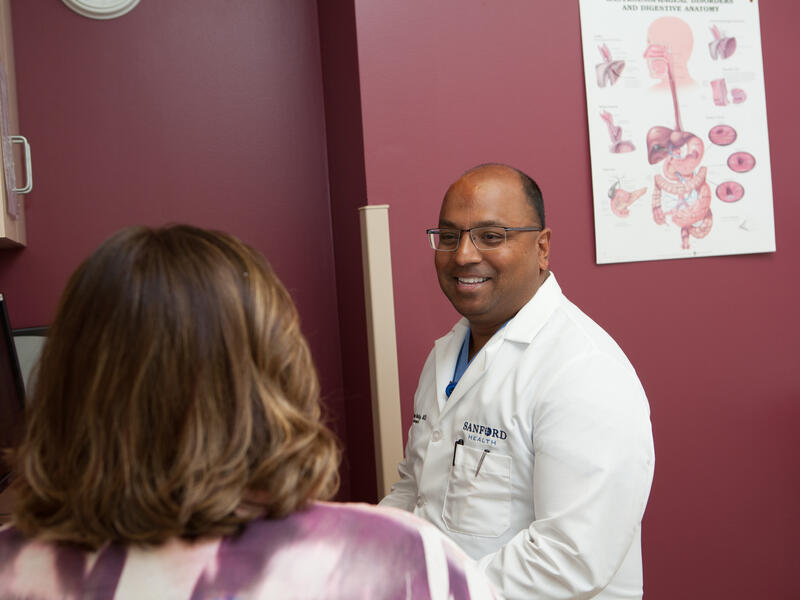Patients’ apprehension about seeking medical attention, while common, remains potentially harmful to overall health.
Gaddum Reddy, M.D., a surgeon at Sanford Worthington, acknowledges that fear of surgery can sometimes be a barrier to doing what is best for you, but he also provides no-nonsense logic on the benefits of overcoming that fear.
“If there’s an issue that is causing you discomfort or weighing in the back of your mind, think about how good it would be to resolve that anxiety,” Dr. Reddy said. “Pursuing medical care under those conditions can be incredibly beneficial in terms of quality of life.”
Dr. Reddy and the surgical staff at Sanford Worthington Clinic and Sanford Worthington Medical Center offer a variety of procedures that can keep treatable conditions from becoming more serious.
These surgeries include:
- Acid reflux treatment
- Appendix surgery
- Cancer surgery
- Colon surgery
- Colonoscopy
- Endoscopy
- Gallbladder removal
- Hemorrhoid procedures
- Hernia repair
- Melanoma surgery
- Trauma and emergency procedures
“To put off for next month or next year what can be treated much sooner will always be an unnecessary risk,” Dr. Reddy said. “Patients might have a fear that, because they’ve ignored their condition long enough, that they’re afraid they’re going to be chastised for seeking care so late. Or they’ve incurred high expenses in their health care but have not yet met their deductible so they’re not going to come in unless something catastrophic happens.”
Dr. Reddy can cite too many recent examples of patients who waited longer than they should. This goes for ignoring warning signs for life-threatening events like heart attacks. It also applies to issues involving gallbladders, hernias and heartburn that begin as eminently treatable but can evolve into more complex procedures if ignored.
Conversations with a primary physician can make the decision-making easier by putting in perspective potential risks in letting things linger.
“What we see in health care almost universally is that the decision to postpone elective care will eventually result in an emergent intervention for that planned elective procedure,” Dr. Reddy said. “Either that or, in cases with something like cancer, it eventually progresses to a non-surgical treatment.”
Promoting health screenings is part of primary providers’ relationships with every patient. Specifically, screenings can be extremely effective tools in giving doctors the information they need to help you ward off the same kinds of problems created by postponing surgeries. People who pay attention to screenings are paying attention to their health.
“We’re always going to pursue screening exams and annual physicals to make sure people are not borderline hypertensive or going to have a heart attack in the next six months,” Dr. Reddy said. “You can’t prevent these kinds of things unless you’re actively engaged in the health care system. You need to be participating in that relationship with your physician, your physician assistant or your nurse practitioner.”
Addressing health concerns in a timely manner is a favor both to patients and the people who care for them.
“It’s a morale booster for us,” Dr. Reddy said. “It’s nice to see patients who are relatively healthy coming in for planned procedures who are going to leave here healthy.”
Learn more
- New tech targets tumors in less time
- Sanford Health vaccinates 1,700 JBS employees in Worthington
- Don’t neglect your health needs. It’s safe to seek care
…
Posted In General Surgery, Healthy Living, Worthington
